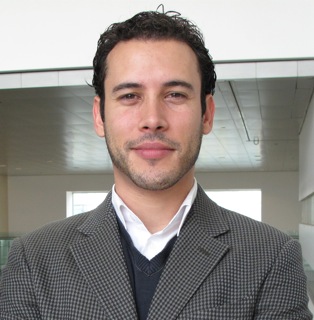Filmed April 2017 – edited into 6 parts; total 90 minutes
In this fascinating keynote presentation, Dr. Jonathan Weiss, one of Canada’s leading autism researchers, describes the individual and contextual factors that increase the likelihood of mental health problems for individuals with autism. Drawing on the research, and his extensive clinical experience, Dr. Weiss offers important insights into the ways these problems can be alleviated by working with individuals, families, and communities.
Learning Objectives
- Recognize ways that mental health problems present in people with autism.
- Identify individuals at risk and contextual risk factors for mental health problems.
- Describe interventions to address mental health problems.
Jonathan Weiss, PhD, CPsych

Families play a critical role in the health of people with developmental disabilities by providing them with care and enabling their access to health services, one of Dr. Weiss’ research interests is the experience of family caregivers. In addition, he is interested in program development and evaluation. Dr. Weiss has a specific interest in the impact of Special Olympics on the psychological well-being of participants, and of cognitive-behavioural and social skill interventions to promote resilience and improve the mental health of children and adults with developmental disabilities.
Part 1: Introduction and overview
Topics covered:
- Transdiagnostic approach
- Multiple baseline design research
- Correlational Study
Part 2: Individual-contextual approach to mental health problems
Part 3: The individual as the target
Part 4: The family as the target
Part 5: The community as the target
Part 6: Discussion period
Questions
- What research is being done on the relationship between environmental factors and anxiety? (Start of video)
- Mindfulness group strategies? (2:49)
- Trauma-focused therapy? (4:35)
- Self-reporting and research by autistic researchers? (5:30)
- Is there a link between personality disorders and autism? (6:47)
- How do you incorporate siblings into the bio-social approach of care? (10:32)
- Parental mental health? (11:57)
- What should be measured to document the impact of an intervention so as to demonstrate that it can have positive health implications?
References cited:
- Transdiagnostic Case Conceptualization of Emotional Problems in Youth with ASD: An Emotion Regulation Approach
- Thriving in Youth with Autism Spectrum Disorder and Intellectual Disability
- Treating Transdiagnostic Processes in ASD: Going Beyond Anxiety
- Emotion Regulation in Autism Spectrum Disorder
- Bullying Victimization, Parenting Stress and Anxiety among Adolescents and Young Adults with Autism Spectrum Disorder
- To keep up to date with the work being done by the ASD and Mental Health Research group at York University, subscribe to the ASD Mental Health Blog

